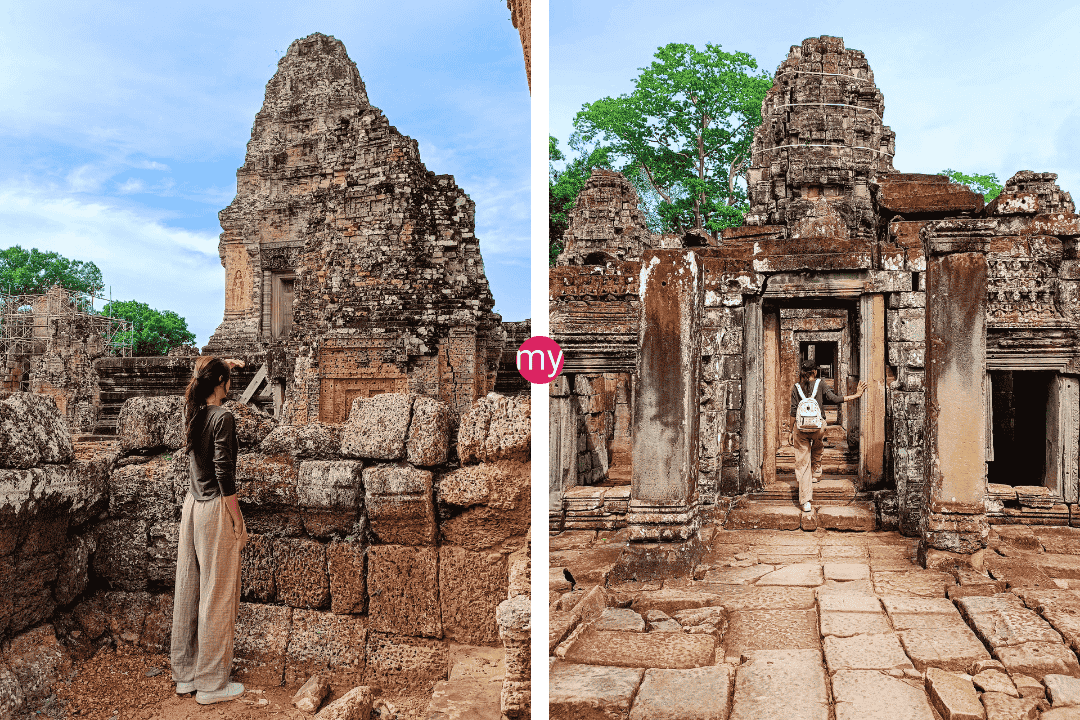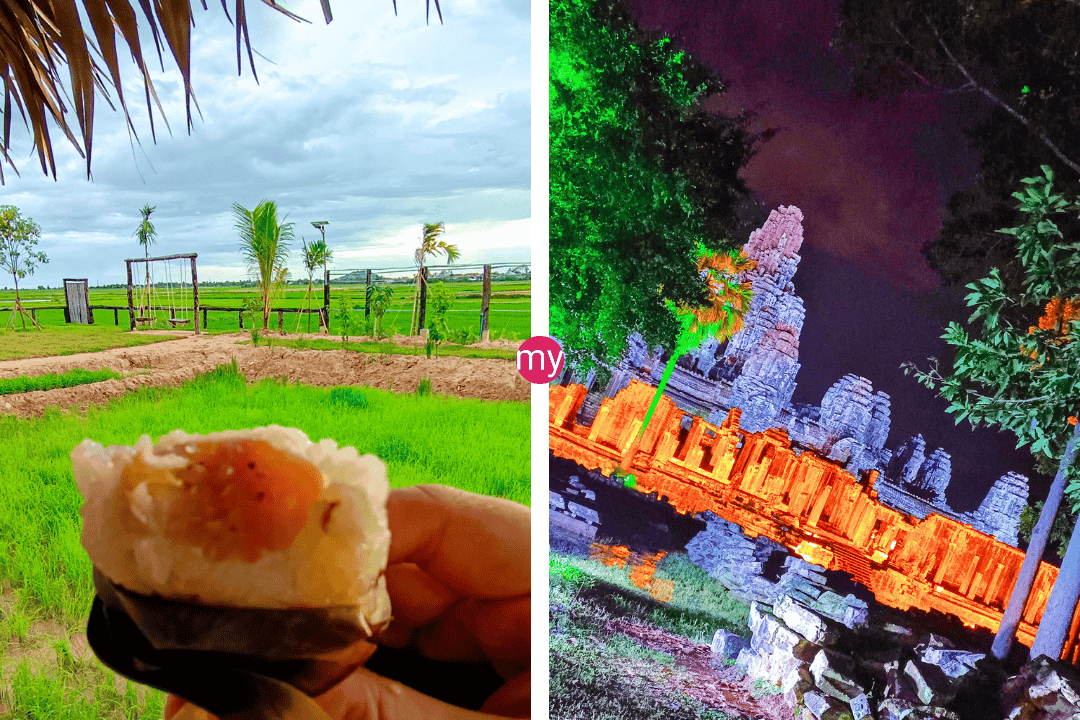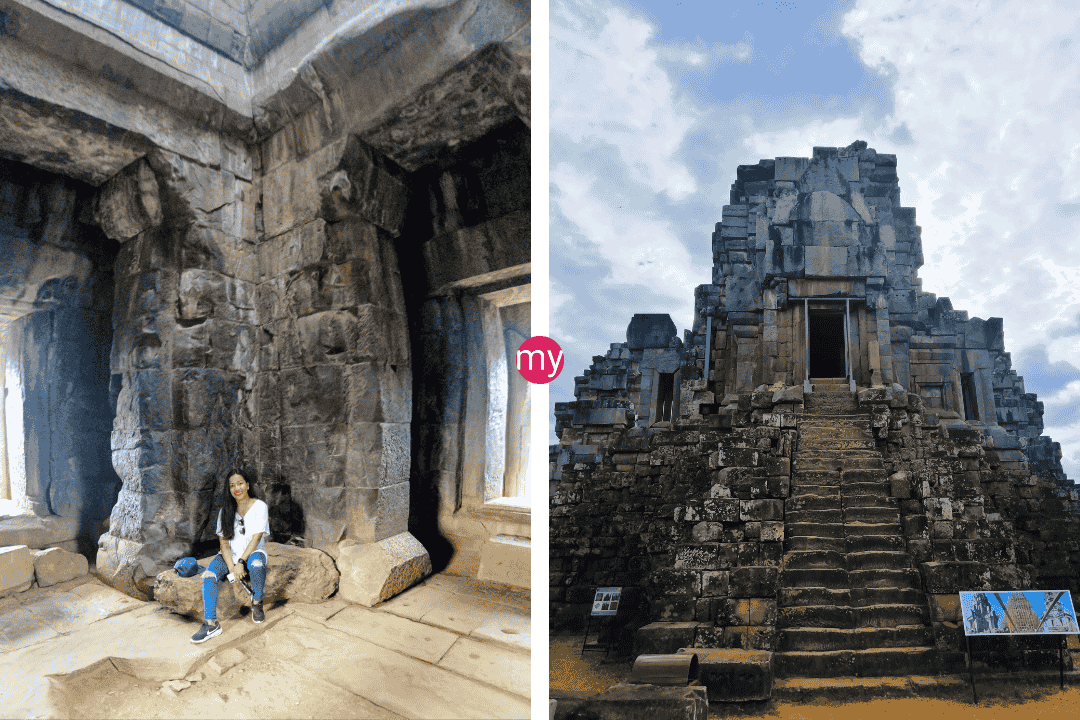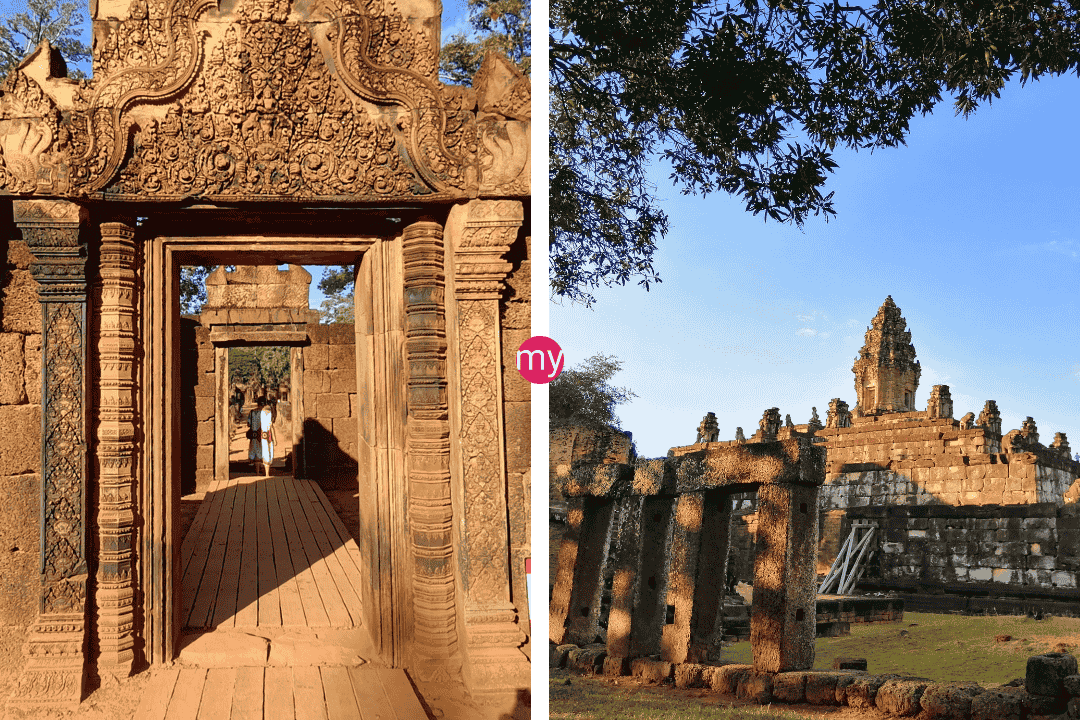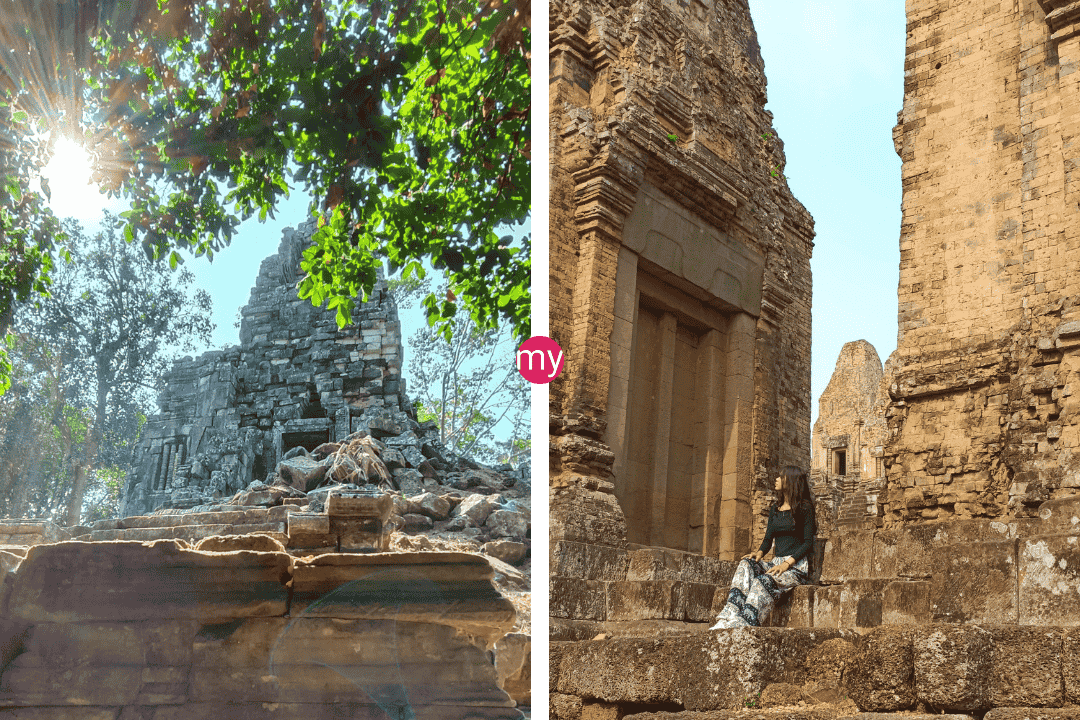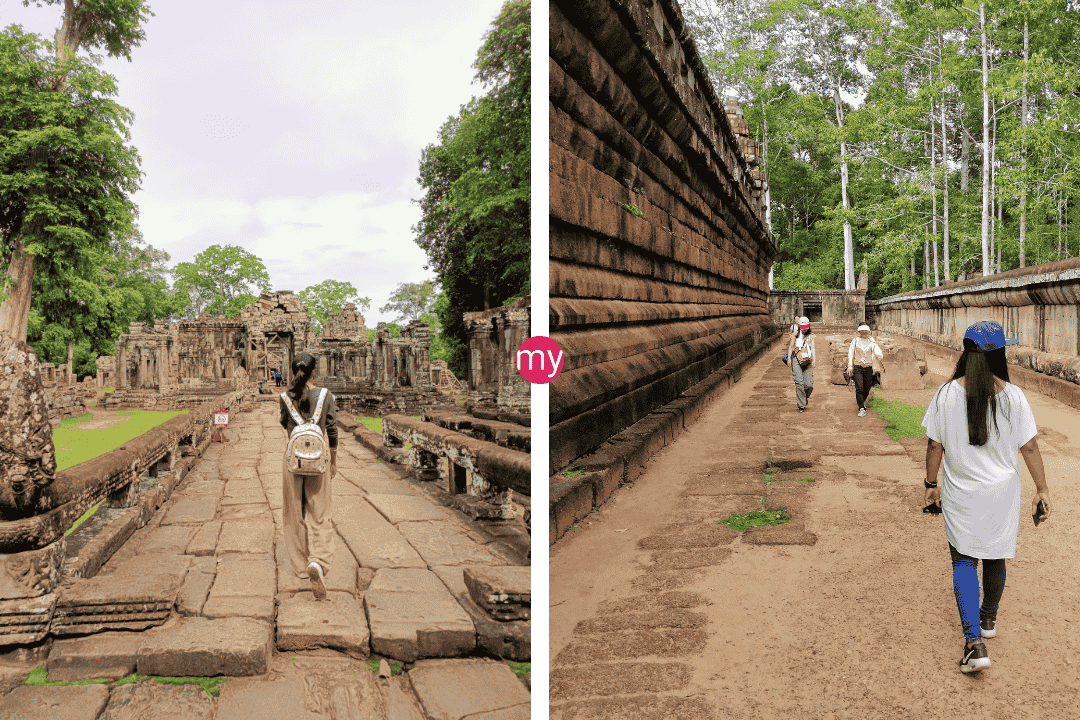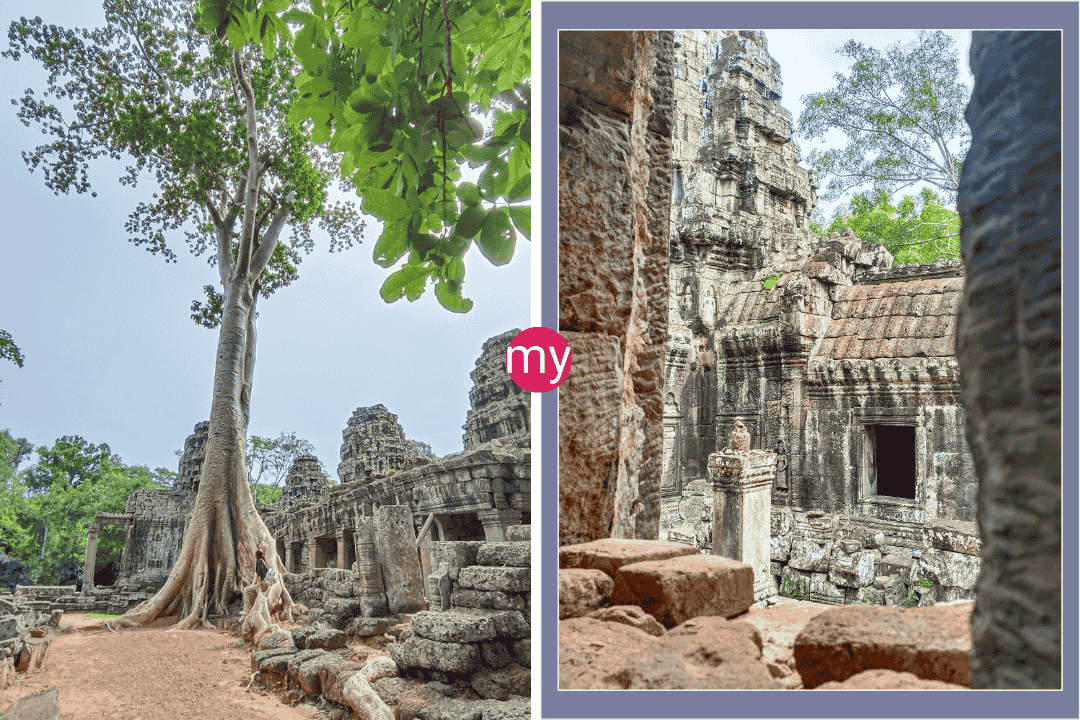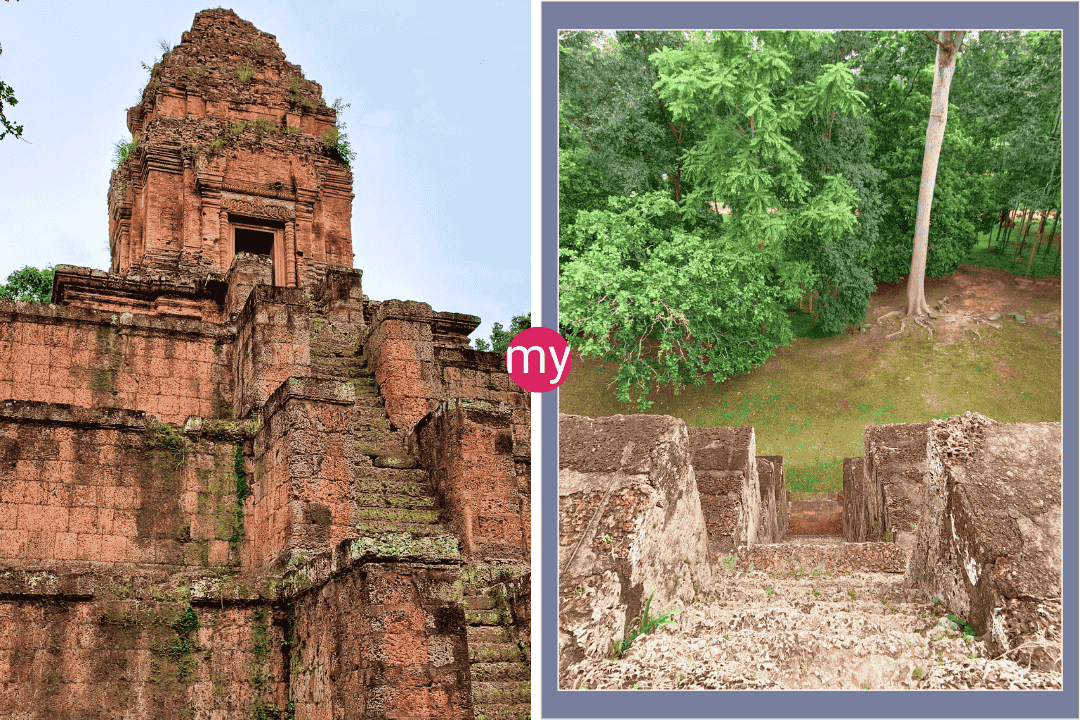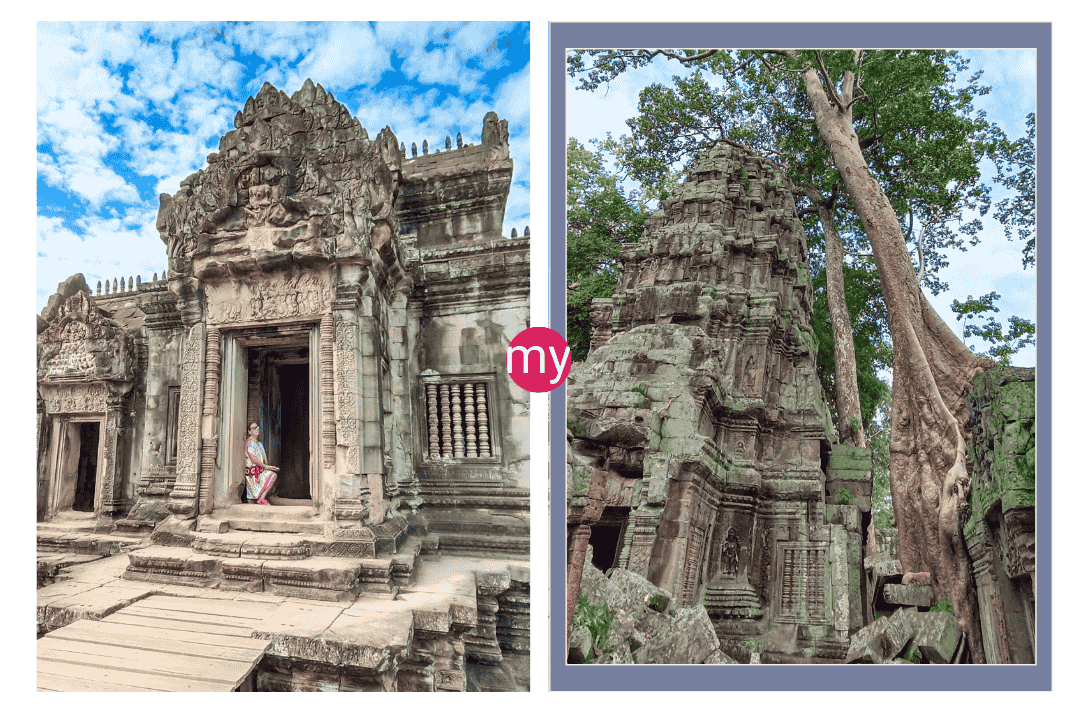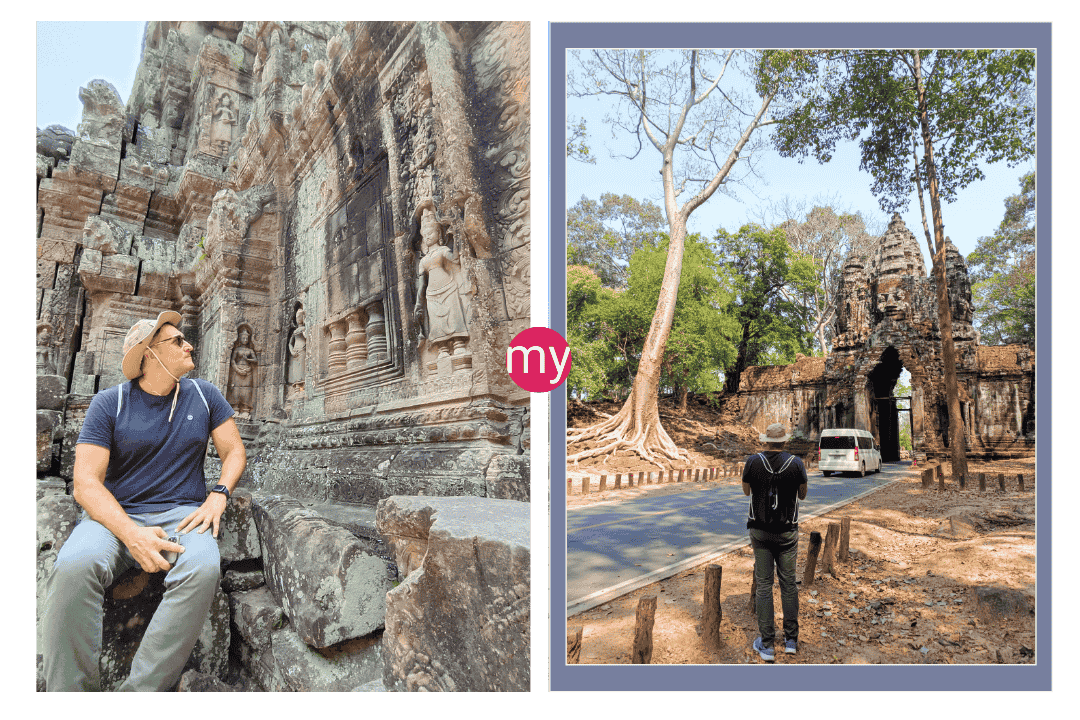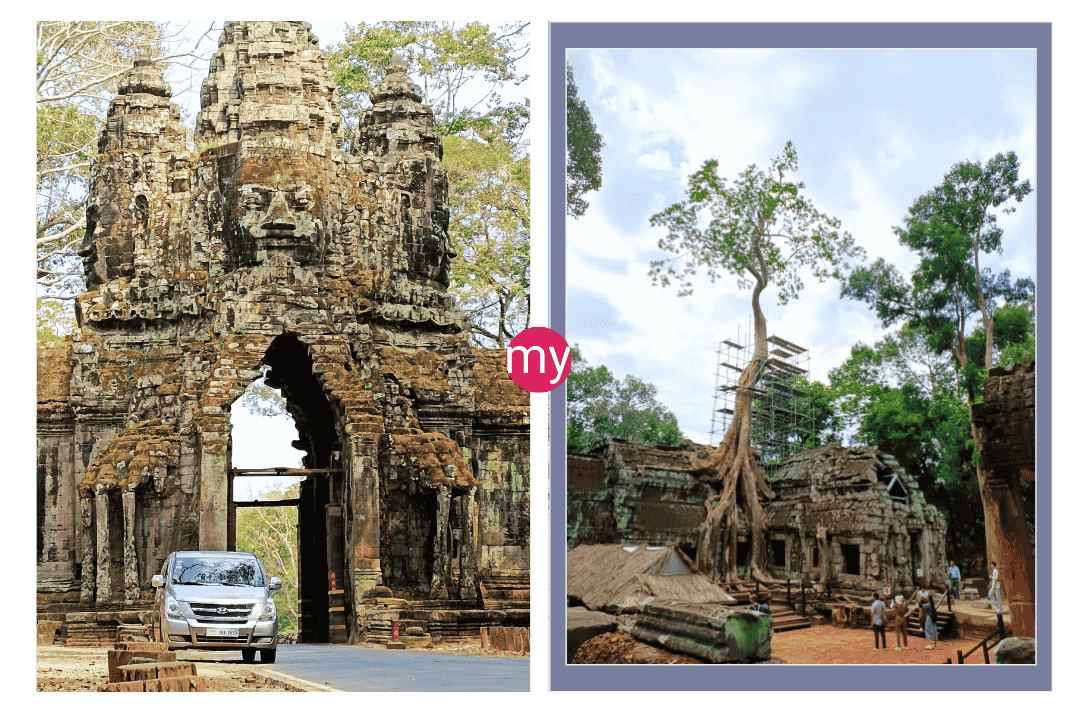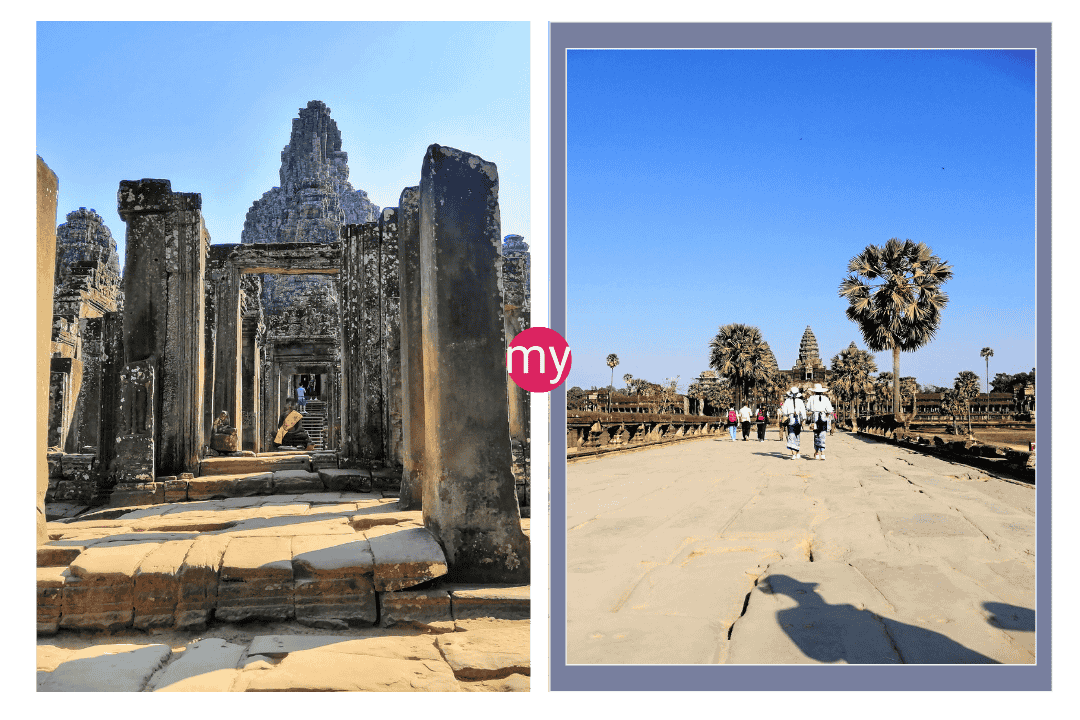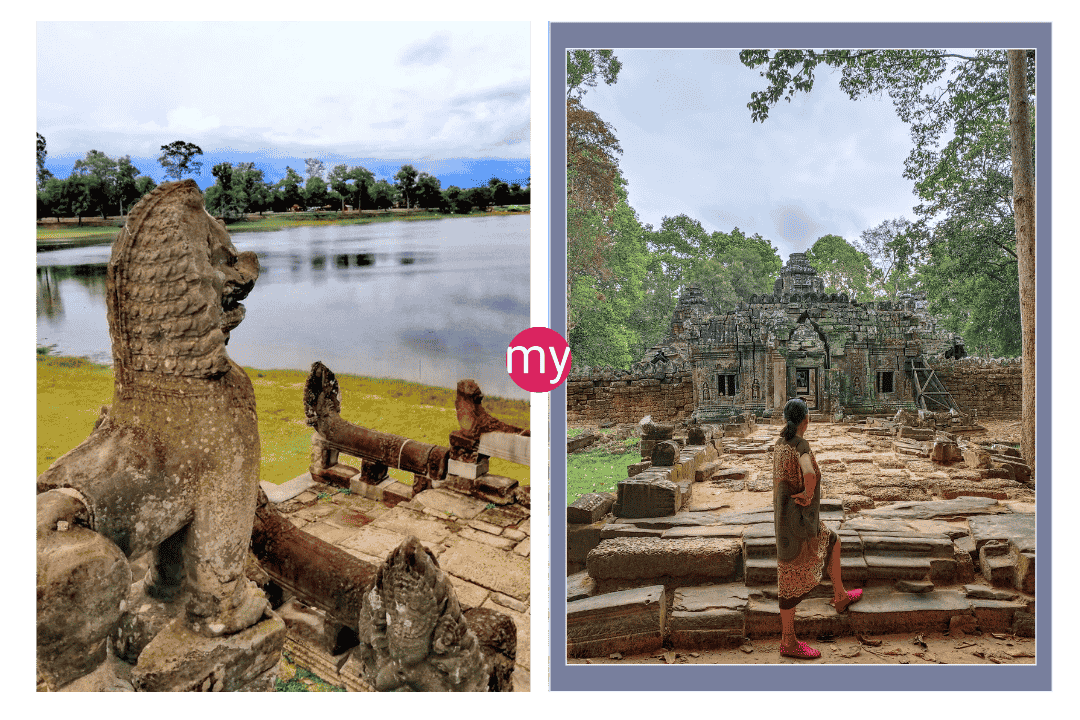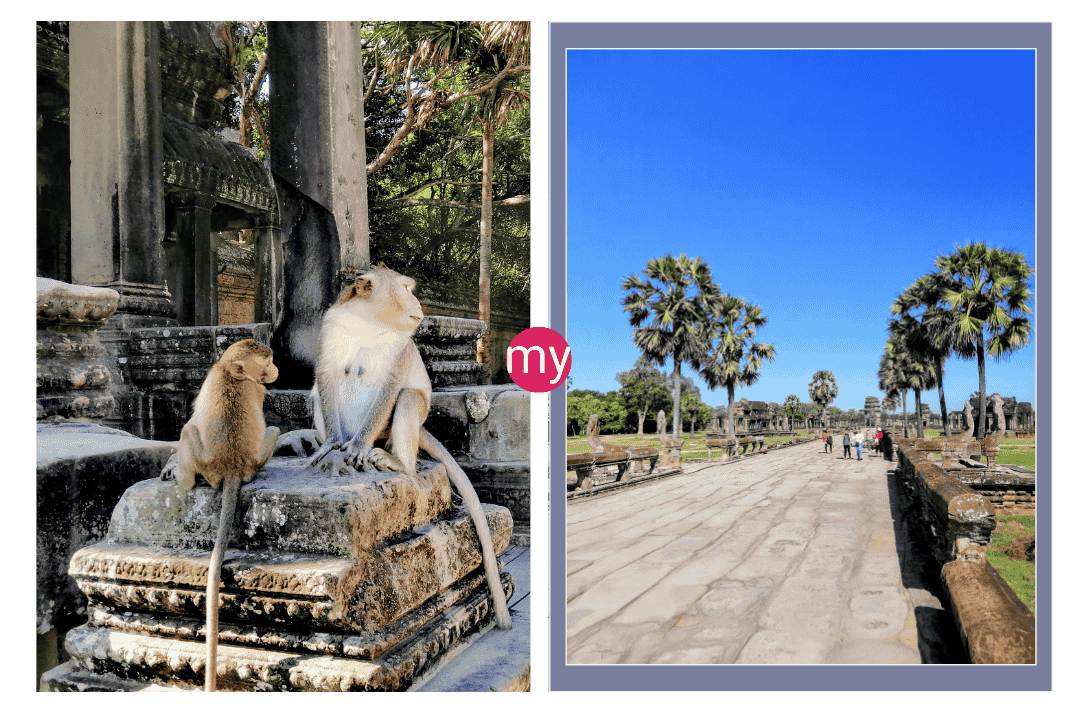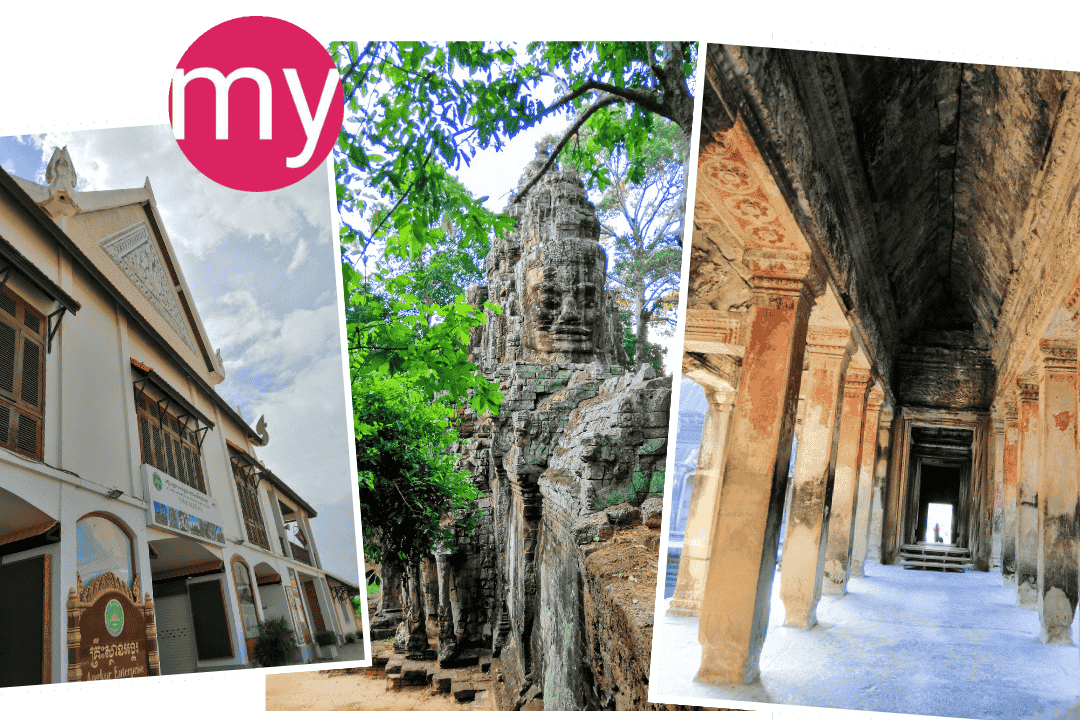7 Secrets of Banteay Kdei Temple - Why This Angkor Wonder Captivates History Lovers
When I walked into Banteay Kdei Temple, I felt like I found a hidden treasure. It’s near Ta Prohm in the Angkor Archaeological Park. This 12th-century Buddhist monastery tells stories of Cambodia’s past.
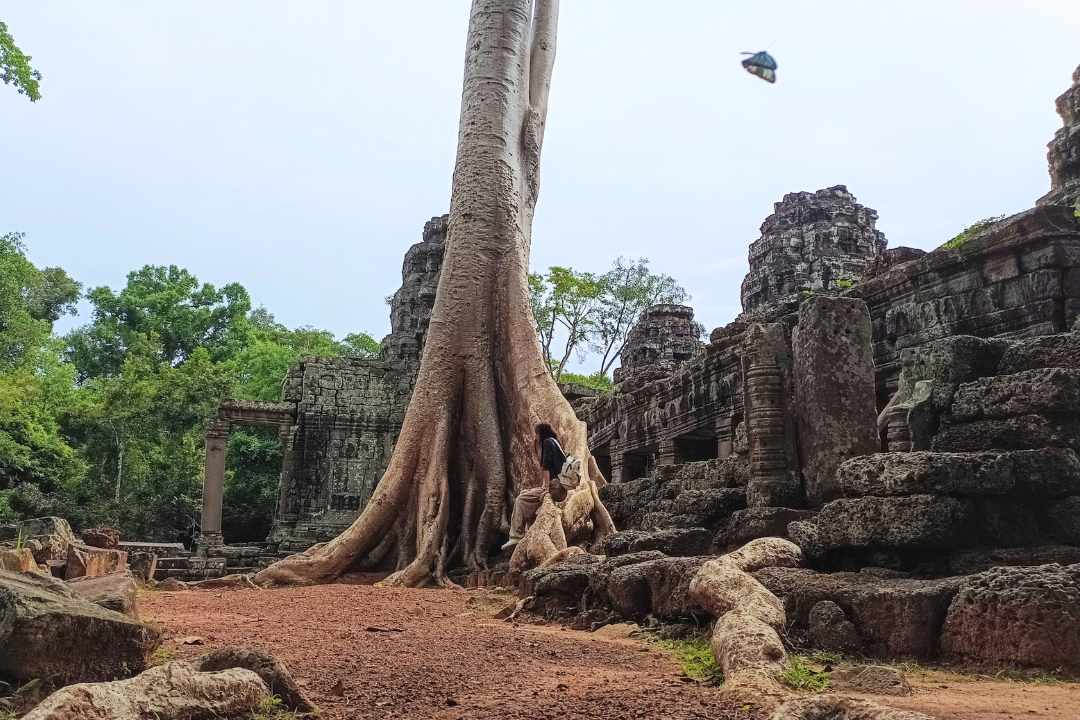
The early sun made the carvings come alive. They show the mix of Buddhist and Hindu art in Khmer architecture.
I went there from November to March, when it’s cooler. This was a smart move because it was quiet. Unlike Angkor Wat, Banteay Kdei was peaceful. I could enjoy the Bayon style towers and passages without crowds.
As I walked, I felt closer to Jayavarman VII, the king who built much of Angkor. His vision is still alive in Banteay Kdei. It shows why this temple is so special to history lovers and visitors.
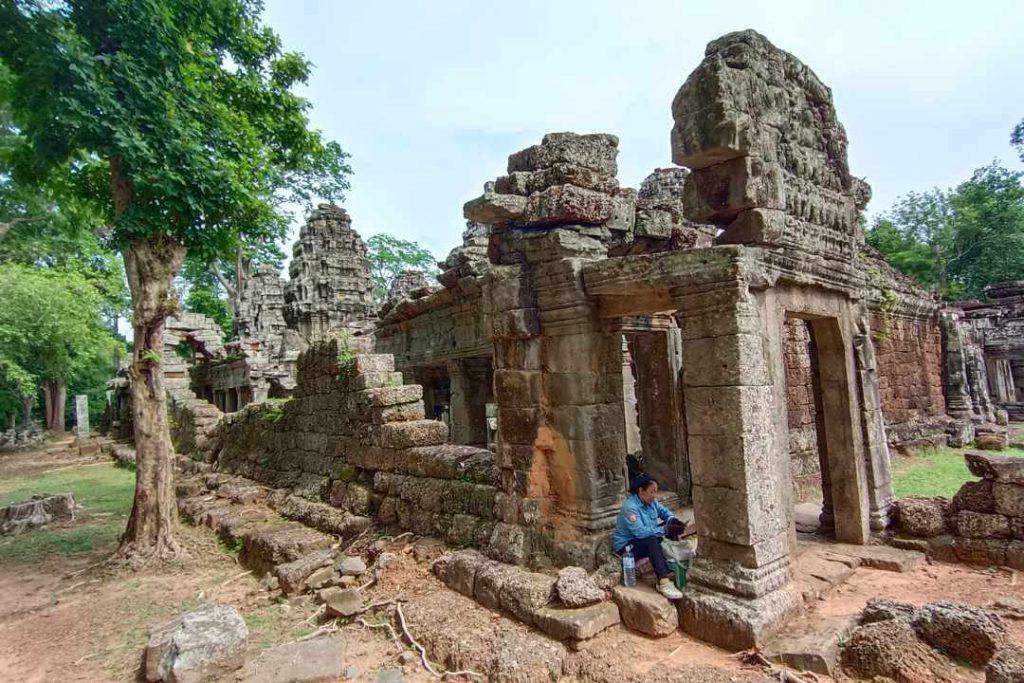
Banteay Kdei Temple – The Hidden Gem of Angkor Archaeological Park
I found a hidden gem in the Angkor Archaeological Park. Banteay Kdei is a 12th-century temple made by King Jayavarman VII. It shows the beauty of the Khmer Empire.
Key Takeaways
- Banteay Kdei is a 12th-century Buddhist monastery in Angkor, Cambodia
- The temple features Bayon style architecture with unique face towers
- It offers a peaceful alternative to more crowded Angkor temples
- The site showcases a blend of Buddhist and Hindu architectural elements
- Visiting during the cooler months (November to March) enhances the experience
- Banteay Kdei provides insight into the reign of King Jayavarman VII
From Hidden Corridors to Royal Secrets: Unmasking Banteay Kdei’s Mysteries
Location and Historical Significance
Banteay Kdei is close to Angkor Wat, just 7.5km away. It was a Buddhist monastery once, filled with monks. Archaeologists found almost 300 sandstone statues there, showing its importance.
Architectural Style and Unique Features
The temple has classic Khmer-style designs. Its walls are made of laterite. Inside, I saw detailed bas-reliefs of Buddhist scenes.
The inner area has four towers and galleries. There’s a big Buddha statue in the middle.
Comparison to Other Angkor Temples
Banteay Kdei is quieter than other temples. It’s smaller than Preah Khan but has its own charm. The sandstone here is not as strong, giving it a unique look.
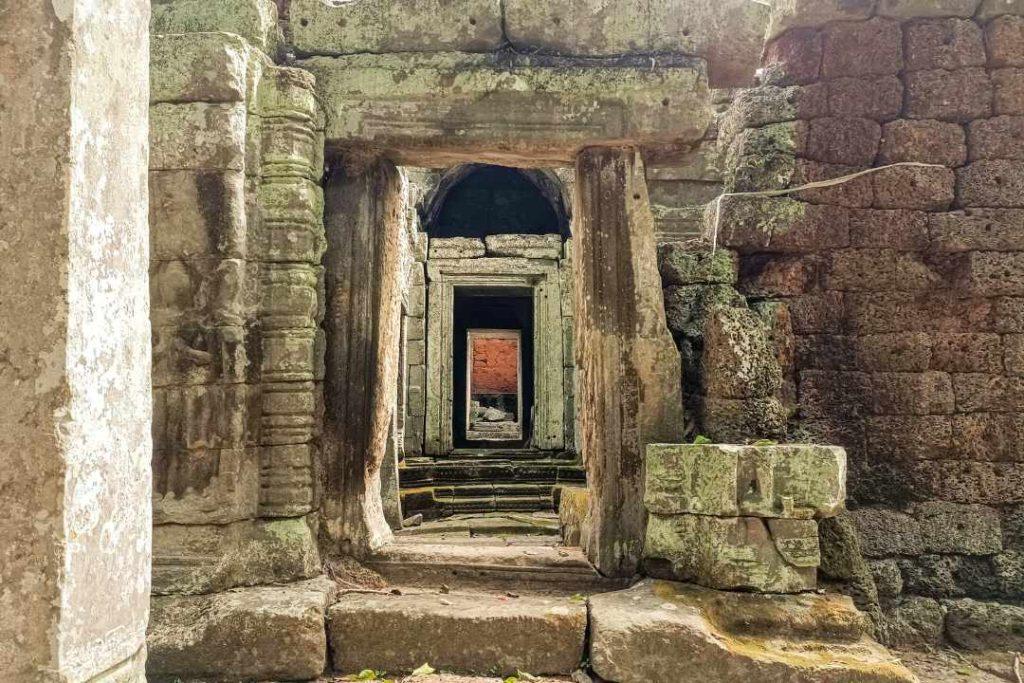
Unraveling the Mystery of Banteay Kdei Temple
I stand in awe before Banteay Kdei, a 12th-century marvel. It’s a UNESCO World Heritage site full of mystery. The weathered stones tell stories of Khmer history.
Archaeological digs have uncovered many layers of time. The temple shows how the Khmer Empire changed over time. Inside, Buddha statues show us ancient spiritual life.
Reading inscriptions, I learn about the past. The Bayon style and its famous faces tell us about King Jayavarman VII. The Hall of Dancers has bas-reliefs of Apsaras dancing forever. Their beauty shows the skill of ancient artisans.
Banteay Kdei still has many secrets. Every stone and carving has stories to tell. Walking through, I feel connected to Cambodia’s deep culture.
The Enigmatic Hall of Dancing Girls
I’m always amazed by the Hall of Dancing Girls at Banteay Kdei. It’s a place where Khmer craftsmanship shines. The walls are filled with beautiful carvings of Apsaras and Devatas.
Intricate Carvings and Their Meanings
The carvings show stories of heavenly dancers. Each Apsara is unique, with different hairstyles and ornaments. This shows the skill of ancient artists.
Devatas are often mixed up with Apsaras but they are guardian spirits. They show the hall’s sacred nature.
Theories About the Hall’s Purpose
People argue about what the hall was used for. Some say it was for religious ceremonies. Others think it was for the king’s entertainment.
With 615 dancers at Ta Prohm nearby, I picture lively shows here. The design, with Buddhas above dancers, points to its spiritual meaning.
Preservation Efforts and Challenges
Conservation at Banteay Kdei is ongoing. Experts work to keep the structure stable and protect the carvings. They fight erosion and plants that harm the art.
It’s a big challenge to save this Khmer art for others to see in the future.
QUOTE: “Banteay Kdei is yet another temple in Angkor ravaged by nature like temple Ta Prohm but to a lesser degree.”
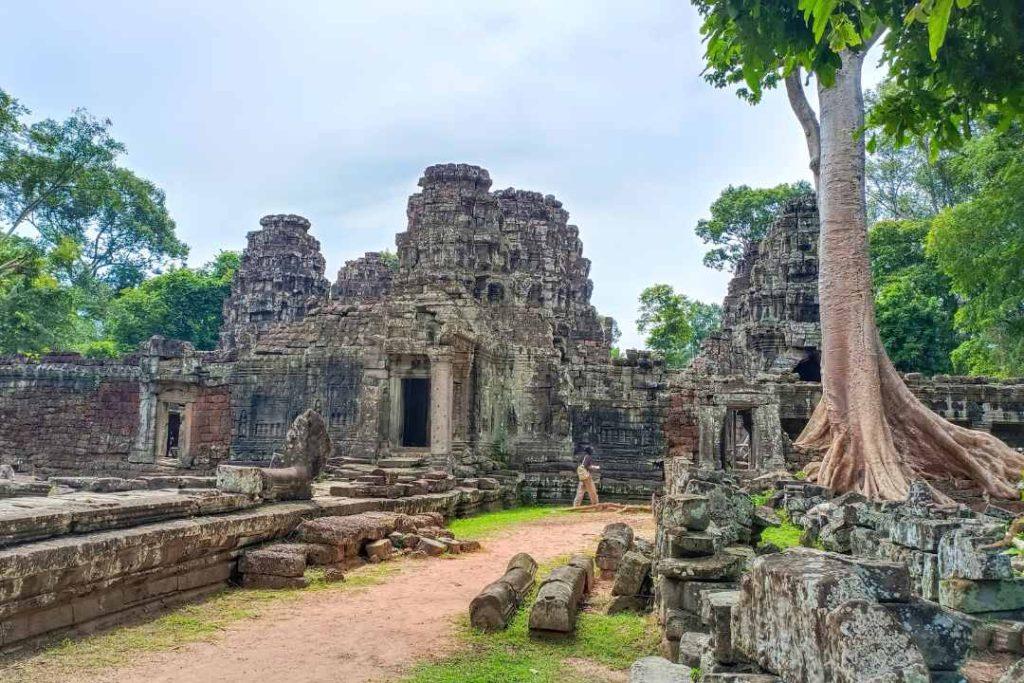
Banteay Kdei Temple – A Buddhist Sanctuary
I am amazed by Banteay Kdei, a special Buddhist place in the Angkor complex. King Jayavarman VII built it in the late 12th century. It was a place for monks and followers to find peace.
The temple was made for learning and meditating. I walk through three areas inside a big wall. It feels like monks were here long ago, looking for wisdom.
The temple looks old but still grabs our attention. The devatas in the towers are well-kept. The Hall of Dancers shows bas-reliefs of dancers and a sitting Buddha. It was likely a key spot for ceremonies.
Being here, I feel a strong link to its history. Banteay Kdei still draws those seeking peace. It shows the deep Buddhist roots of ancient Cambodia.
The Fascinating Fusion of Hindu and Buddhist Elements
Banteay Kdei is a special place that mixes Hindu and Buddhist elements. It shows how beliefs changed in Khmer history. The design tells of a spiritual journey, blending both faiths.
Architectural Influences
At Banteay Kdei, you’ll see both Hindu and Buddhist styles. This mix shows how different beliefs came together in Cambodia’s past. The temple’s look is a peaceful mix of both spiritual styles.
Symbolic Representations
The temple is full of beautiful sculptures. You’ll see Hindu gods and Buddhist figures together. These artworks tell us about the spiritual life of the Khmer people over time.
Evidence of Religious Transitions
Banteay Kdei shows how Khmer beliefs changed over time. During Jayavarman VIII’s rule, some Buddhist symbols were changed to bring back Hinduism. This shows how religious views in ancient Cambodia changed. The temple invites us to explore these changes.
Related Links Box
Explore the wonders of Siem Reap with our handpicked tours:
- Experience the magic of sunrise at Angkor Wat
- Discover the hidden gems of Beng Mealea Temple
- Immerse yourself in the rural charm of the Siem Reap Countryside Tour
- Unveil the ancient mysteries of Ta Prohm Temple
Each of these Siem Reap tours promise an unforgettable adventure. Start planning your journey today and uncover the best of Siem Reap!
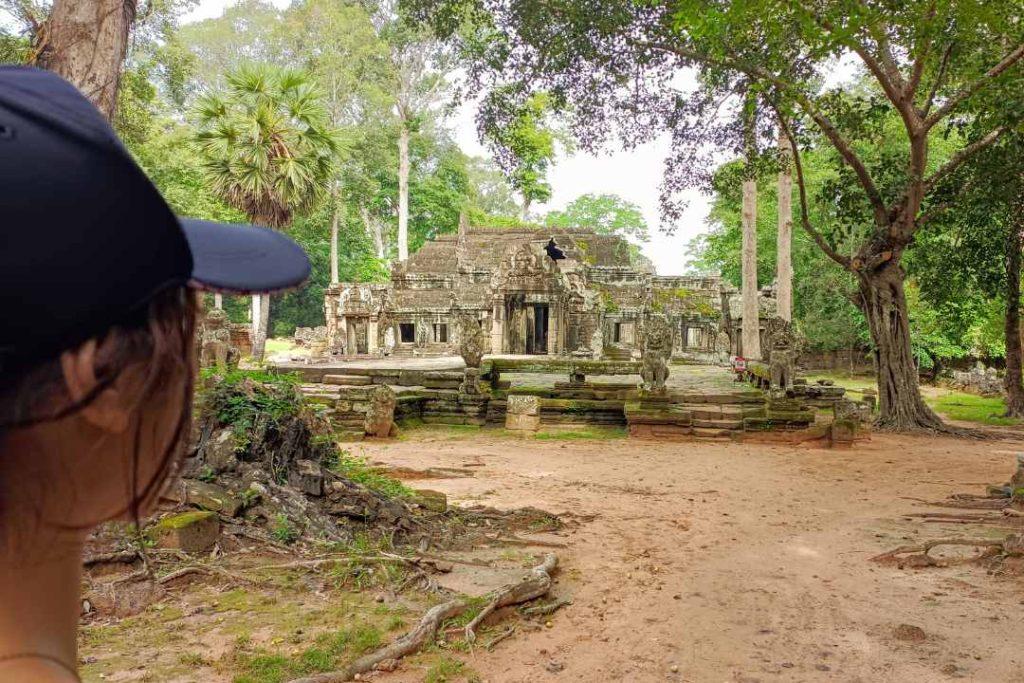
QUOTE: “The original name for Banteay Kdei was Kuti which was mentioned in a carving in Sdok Kak Thom which is a Khmer temple located in Thailand. The carving tells the story of Jayavarman II who created an estate called Kuti.”
Nature’s Reclamation: Jungle Meets Ancient Stone
As I walk through Banteay Kdei, I see ancient buildings and wild nature together. This place shows how strong the jungle is. Strangler figs wrap their roots around old walls, making a magical scene.
Tree roots go through the stone, trying to take back the temple for the jungle. This shows how humans and nature always fight. Lichens and mosses cover the stone, making it look green.
The place is very beautiful and a little spooky. Sunlight comes through the trees, making shadows on the carvings. It feels like I’m in a world that stopped moving. Banteay Kdei is perfect for photographers and history fans.
Banteay Kdei is different from the well-kept parts of Angkor Archaeological Park. It gives me a real, true feeling. I can see how time goes by and how strong human work and nature are.
Exploring the Lesser-Known Corners of Banteay Kdei
I love finding hidden spots in Angkor Archaeological Park. Banteay Kdei is a 12th-century Buddhist temple with secret places. It’s not as busy as other sites, showing off Cambodia’s rich culture.
Hidden Passages and Chambers
Walking through Banteay Kdei, I see its maze-like design. Narrow paths take me to hidden rooms, each with its own story. These secret spots give a special feeling of discovery.
Off-the-Beaten-Path Photo Opportunities
Photographers love Banteay Kdei. The best photos are taken early morning or late afternoon. The soft light and fewer tourists make for amazing pictures.
Tips for an Intimate Temple Experience
To really enjoy Banteay Kdei, go during quiet times. Early mornings are great for exploring. By taking my time, I find hidden carvings and details others miss.
Banteay Kdei mixes nature with ancient stone for a magical feel. It’s perfect for those wanting a deep connection with Cambodia’s history. It’s a key spot for thoughtful tourism.
The Restoration Journey: Past, Present, and Future
I’ve seen the hard work to fix Banteay Kdei, a smaller cousin of Ta Prohm. They’re making sure it stays strong and true to its old self. Teams are working hard to keep it safe for visitors while keeping its original look.
The temple’s design makes fixing it tricky. It has 5-balustered blind windows and detailed columns. This makes it hard to keep it up.
Archaeologists are still learning new things about Banteay Kdei. It was built in 1180 for Mahaya Buddhism. They’re finding old drainage systems, like at Ta Prohm. The big gateway with four big faces is also getting special care.
Plans for the future include more research to learn more about the temple. They want to keep the delicate statues safe. The goal is to keep the temple’s mystery and make sure it lasts for others to see.
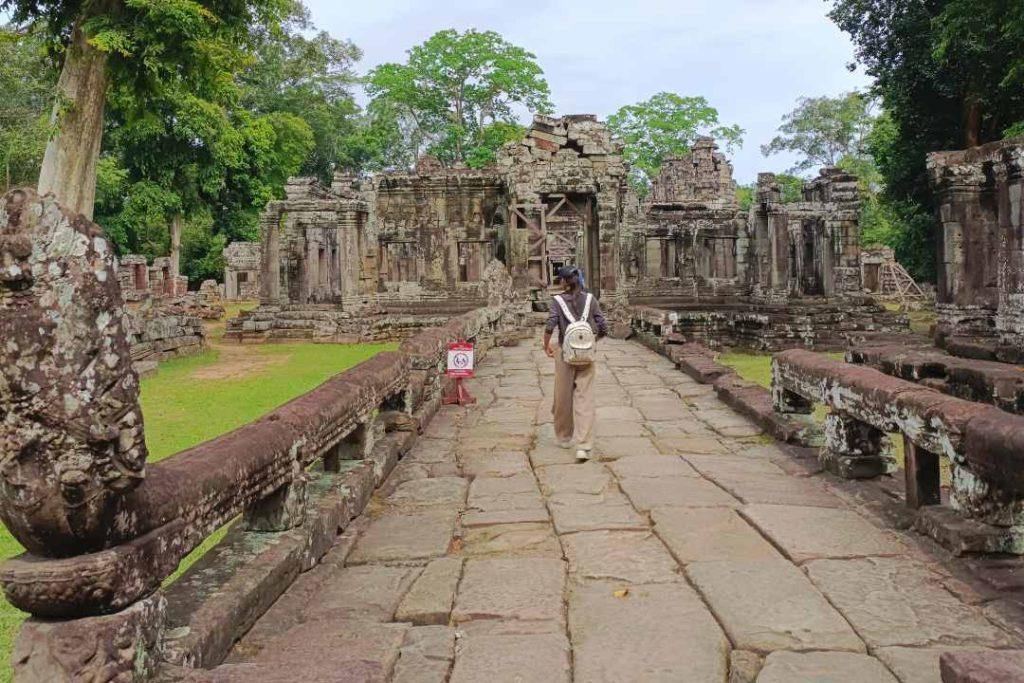
Thinking about my visit to Angkor, I feel the deep history of Banteay Kdei. This 12th-century site is a key part of Southeast Asian history. It shows us the Khmer civilization’s beauty and skill.
Banteay Kdei is quiet, unlike the busy Angkor Wat. It’s perfect for those who love history. You can walk where monks once lived, seeing their world from the 1960s.
This temple mixes Buddhist and Hindu styles. It tells us about the big changes in Khmer beliefs.
Visiting Banteay Kdei made me value its preservation. I hope people will keep learning about this amazing temple. I want it to stay a big part of our shared history.
Featured
Explore more on My Siem Reap Tours
Koh Ker and Beng Mealea guided tour | Banteay Srei temple tour semi-private guided tour | Angkor Wat Sunrise shared tour | Koh Ker and Beng Mealea guided tour | Morning Siem Reap floating village tour | Afternoon Siem Reap floating village tour | Private Angkor Wat special tour | Kulen Waterfall small group guided Tour | Private Angkor Wat mix temples photo tour
